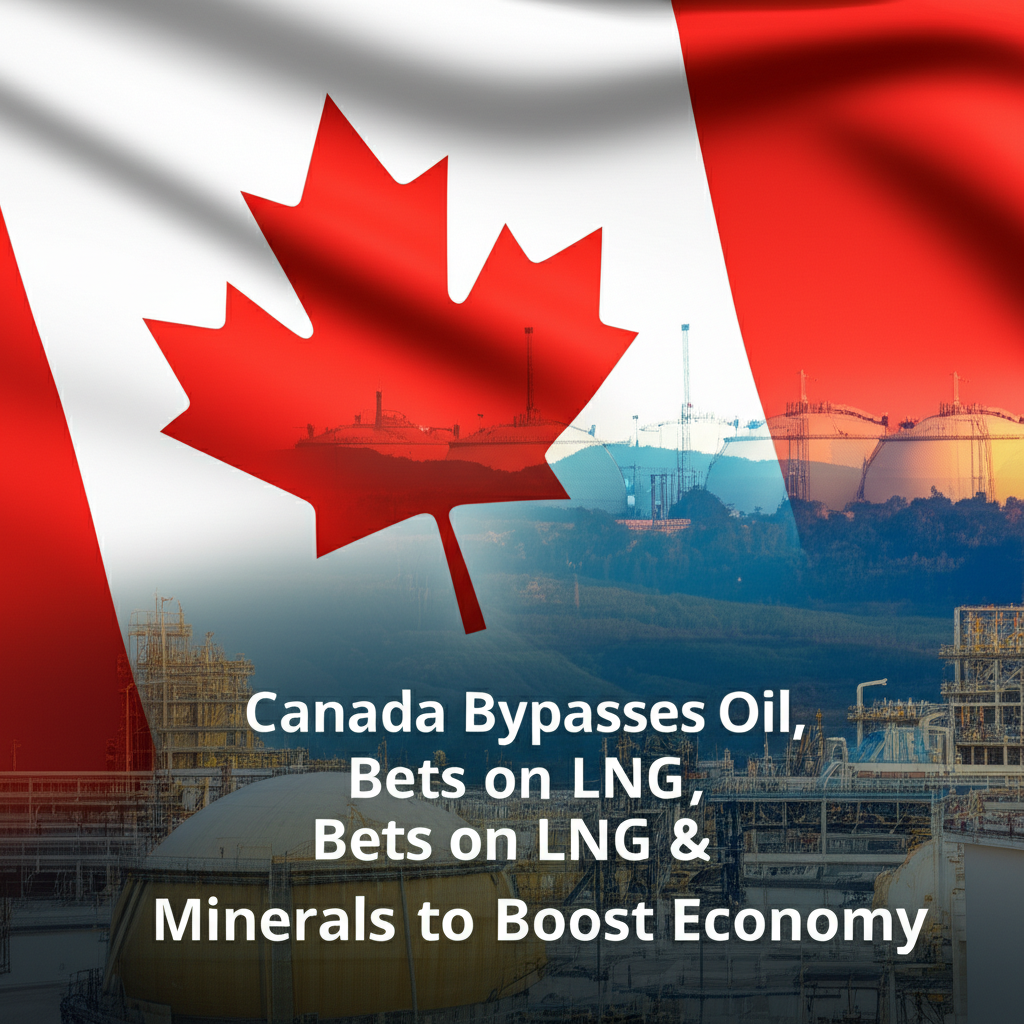Canada Shifts Focus: LNG & Minerals Drive Economic Growth, Not Oil

Canada, traditionally a major oil producer, is increasingly turning its attention to liquefied natural gas (LNG) and mineral resources as key drivers of economic growth
Background
This strategic shift comes amid growing global demand for cleaner energy sources and critical minerals needed for renewable energy technologies and electric vehicles
The move represents a significant departure from the country's historical reliance on oil exports and signals a forward-looking approach to securing its economic future
For decades, Canada's oil sands have been a cornerstone of its economy, particularly in the province of Alberta
However, fluctuating oil prices, environmental concerns, and increasing competition from other oil-producing nations have prompted a reassessment of Canada's energy strategy
The Canadian government, along with various industry stakeholders, is now actively promoting LNG exports and developing its vast mineral reserves as more sustainable and economically viable alternatives
The global energy landscape is changing rapidly," stated Dr. Emily Carter, an energy economist at the University of Calgary.
While oil will continue to play a role, the long-term growth potential lies in LNG and minerals. Canada has the resources and the expertise to become a major player in these sectors.
Canada possesses significant reserves of natural gas, particularly in British Columbia and Alberta. Several large-scale LNG export projects are currently under development, aimed at supplying growing demand in Asia and Europe.
These projects promise to generate billions of dollars in revenue and create thousands of jobs.
In addition to LNG, Canada is also rich in critical minerals such as lithium, nickel, cobalt, and rare earth elements, which are essential for the production of batteries, solar panels, and wind turbines
These minerals are becoming increasingly sought after as the world transitions to a low-carbon economy.
The Canadian government is actively supporting the development of its mineral resources through investments in infrastructure, research and development, and streamlined regulatory processes
The transition away from oil is not without its challenges.
The oil and gas industry remains a significant employer in Canada, and any shift towards other sectors will require retraining and reskilling of the workforce
Furthermore, environmental concerns surrounding LNG production and mining activities need to be addressed to ensure sustainable development.
"We need to ensure that these new industries are developed responsibly, with a focus on minimizing environmental impacts and maximizing benefits for local communities," emphasized Sarah Thompson, an environmental policy analyst
Despite these challenges, the potential benefits of focusing on LNG and minerals are significant. These sectors offer opportunities for diversification, innovation, and long-term economic growth.
By embracing these new opportunities, Canada can position itself as a leader in the global energy transition and secure its economic future in a rapidly changing world
Looking ahead, Canada's success in this transition will depend on its ability to attract investment, develop its infrastructure, and address environmental concerns
The government's commitment to supporting these sectors, coupled with the country's abundant natural resources and skilled workforce, suggests that Canada is well-positioned to capitalize on the growing demand for LNG and critical minerals
The next decade will be crucial in determining whether Canada can successfully pivot its economy away from oil and towards a more sustainable and diversified future
Moreover, the geopolitical landscape plays a role.
With increasing instability in traditional energy-producing regions, Canada offers a stable and reliable source of both LNG and critical minerals, making it an attractive partner for countries seeking to secure their supply chains
This geopolitical advantage further strengthens Canada's position in the global energy market.
Ultimately, Canada's decision to prioritize LNG and minerals represents a bold and strategic move to adapt to a changing world
